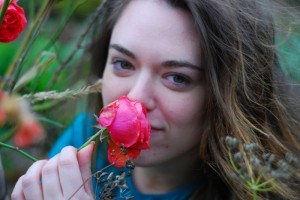A sold-out speed-dating event on campus recently raised $540 for Prostitute Empowerment Education Resource Services (PEERS).
Hosted at the Dunlop House at Lansdowne campus, a venue that usually houses the on-campus pubs, the alcohol-free fundraiser turned Saturday, November 19 into a chance for attendees to impress potential romantic interests in only a few short minutes.

“The first half of the event was definitely the craziest in the sense that we were over capacity and had to create a makeshift island in the middle of the floor,” says Chantal Kyffin, Camosun College women’s director and coordinator of the Camosun College Student Society-sponsored event. “People were good about it. They didn’t seem to mind. We definitely had some characters attend, as well, which made things interesting.”
The concept of speed dating was developed in California in the late 1990s to give young, single Jewish people an opportunity to become acquainted outside the traditional bar scene. Since then, the concept has taken off and attracted many to its unimposing matchmaking concept.
Kyffin came up with the inspiration to host a speed-dating night last spring while she was doing an assignment for her social work degree program.
“One of our assignments was to take on a project of our own that would demonstrate leadership skills,” she says. “As soon as I heard of the idea of speed dating, I wanted to do it.”
After researching the speed-dating phenomenon, Kyffin felt that it would be a great opportunity for single students, straight or gay, to connect with one another.
With the coordination of her peers at the student society and help from the Dunlop House staff, she piggybacked the idea as a fundraiser.
Approximately 60 students from Camosun and the University of Victoria attended the event. Originally, seven minutes was going to be given to each attendee to converse with one another, but the amount of time was shortened to four minutes due to the large turnout of speed daters.
A scorecard was given to each attendee so they could rate the people they felt most connected with. A coordinator tallied each person’s card and made possible matches for students, which were then emailed to each contestant after the event.
“I don’t know if anyone found their soul mate,” says Kyffin, adding that “there were some definite favorites of certain men and women.”
